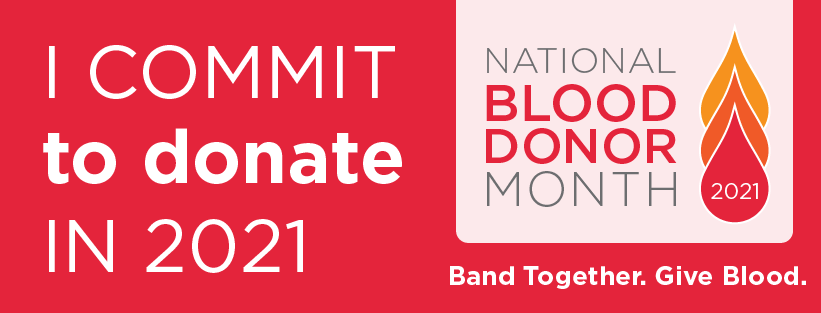January is National Blood Donor Month – a month used to signify the need for donors in a time where giving is sparse. Blood donations typically drop off during and immediately after the winter holidays, which makes National Blood Donor Month in January a critical time for blood donations.
Busy schedules, holiday breaks from school, inclement weather and winter illnesses contribute to fewer blood and platelet donations. Especially more so now with Coronavirus, it’s important to donate blood or help spread awareness.
An estimated 38 percent of the U.S. population is eligible to donate blood at any given time, less than 10 percent actually do. Although there is no upper age limit, there is a minimum age requirement.
Individuals who are 17 years of age in most states (16 with parental consent where allowed by state law), weigh at least 110 pounds and are in generally good health may be eligible to donate blood.
One in seven patients entering a hospital needs blood. Blood transfusions are the most frequent procedure performed in hospitals, with more than 33,000 daily donations required to meet patient needs in the U.S., according to ADRP, an international division of America’s Blood Centers.
If you can, please consider donating blood, not only this month but when the time allows year-round!

